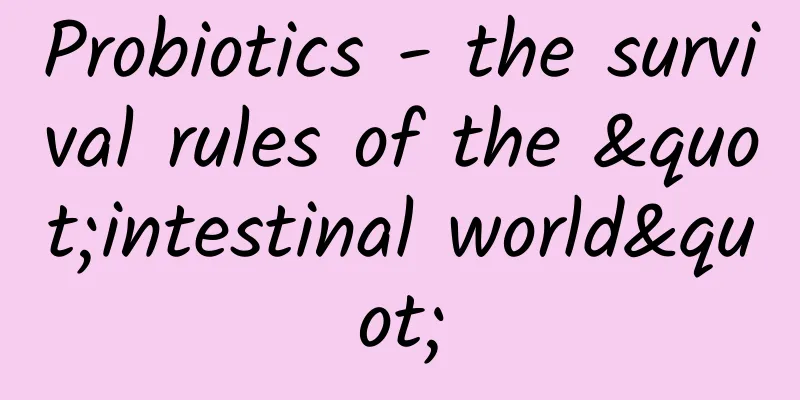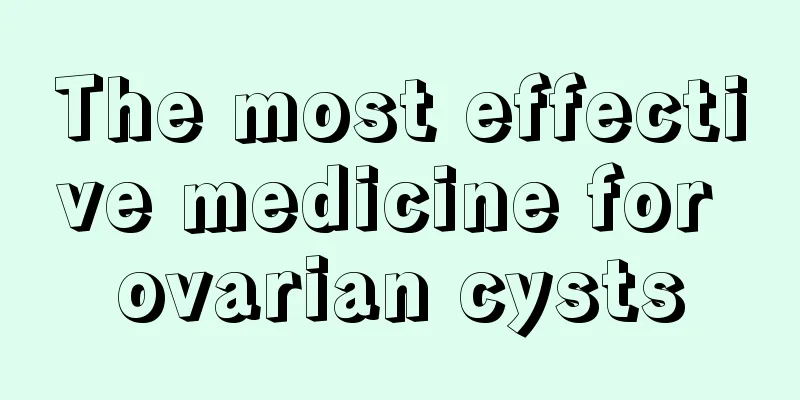Probiotics - the survival rules of the "intestinal world"

|
Author: Cui Yihui, registered dietitian, master of medicine Reviewer: Wang Junbo, Associate Professor and Doctoral Supervisor, Peking University Health Science Center Let me first introduce you to some "intestinal" knowledge about the human intestinal world. The intestine is the main place where the human body absorbs nutrients. The intestine is the largest immune organ in the human body. The intestine is the largest "waste disposal plant" in the human body. The intestine is a digestive organ and also the "second brain" of the human body. Of course, the huge "intestinal world" is also the place where various bacteria colonize, including probiotics, pathogenic bacteria and neutral bacteria, which together form a relatively stable intestinal flora in the human body. (Copyrighted image from the gallery, no permission to reprint) In the intestinal flora of healthy people, there are more probiotics and fewer pathogenic bacteria. While probiotics are constantly proliferating, pathogenic bacteria are also constantly multiplying. Probiotics must not let pathogenic bacteria gain the upper hand, otherwise even neutral bacteria may "rebel against the enemy" and start "making trouble". Therefore, probiotics often inhibit the growth and reproduction of pathogenic bacteria through the following three means. Fighting for "territory" : Probiotics compete with harmful bacteria for colonization sites on the intestinal wall (this is the "stronghold" where bacteria "take root" in the intestines). This is more conducive to competing for nutrients and expelling harmful bacteria from the intestines. Changing the intestinal ecological environment : Probiotics lower the pH of the intestinal cavity by producing lactic acid, creating an acidic environment. The growth of pathogenic bacteria and E. coli that prefer an alkaline environment is inhibited or even killed in an acidic environment. Enhance the activity of intestinal immune cells (macrophages) : Probiotics can produce some biochemical signal substances, which are transmitted to macrophages. Macrophages recognize the colonization sites of pathogens and phagocytize them, thereby eliminating the pathogens. This is the "survival wisdom" of the little probiotics in the "intestinal world". It seems easy, but it is difficult to do. As the host of probiotics, we need to take practical actions to cheer them up. The first step is to remember to take soluble dietary fiber (prebiotics) every day to feed them and let them fight with full energy! |
<<: High sugar and high fat content? Understand these 5 things to eat mooncakes safely!
>>: He is not overthinking or being petty, but he is really depressed.
Recommend
What is the reason for yellow urine and yellow vaginal discharge?
In life, many women are troubled by various gynec...
Which one should be put first, hot oil or fish soy sauce for steamed fish? Which oil should be poured on the steamed fish to make it more fragrant?
We all know that there are many ways to eat fish,...
Can I have sex the day before my period?
During menstruation, women's lower body will ...
I get hungry as soon as night falls and crave food. Is there any help?
Many people have experienced being hungry at nigh...
What does multiple uterine fibroids mean?
Speaking of uterine fibroids, I believe many wome...
What are the effects of missing menstruation on the body?
Menstruation is a physiological condition unique ...
The elderly love to take naps, that may not be due to sleepiness
Daytime napping in older adults is normal in the ...
What are the disadvantages of breast moxibustion?
Moxibustion is a traditional Chinese medical trea...
What should I do if I have severe dysmenorrhea?
Friends who suffer from dysmenorrhea must be feel...
What causes dizziness after having an IUD inserted?
We all know that when men and women have sex, if ...
How much weight gain is normal during the third trimester of pregnancy
One person eats for two, so that the baby can dev...
Is delayed menstruation caused by lack of blood in the body? Is it a distress signal from the body that menstruation is delayed by five days every month?
gossip A few days ago, "It turns out that de...
AED enters Beijing subway: The "life-saving artifact" is here, do you dare to use it?
Life is like a one-way train. We are exhausted an...
How to measure cervical length
The female uterus is a very important organ for w...









